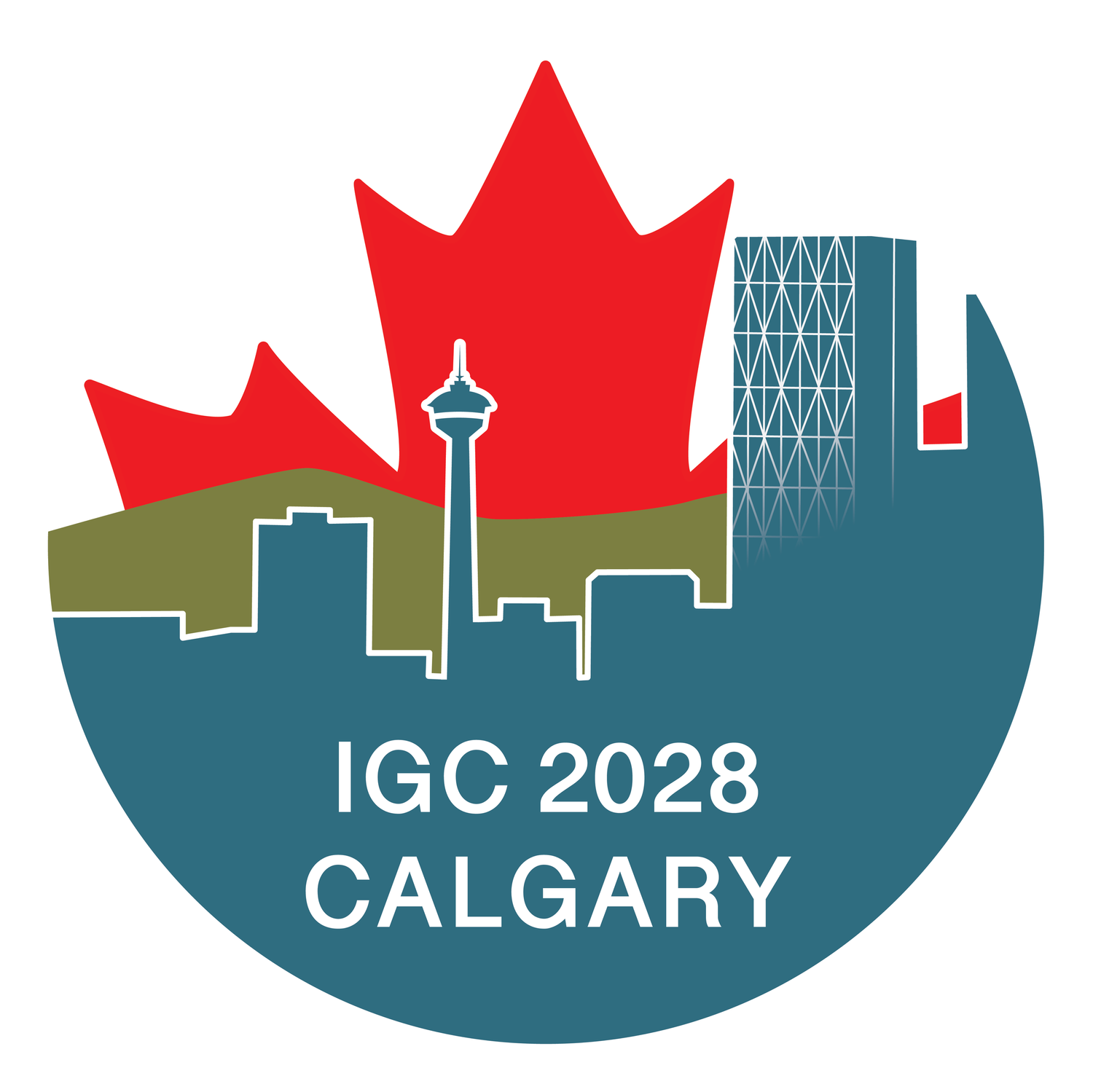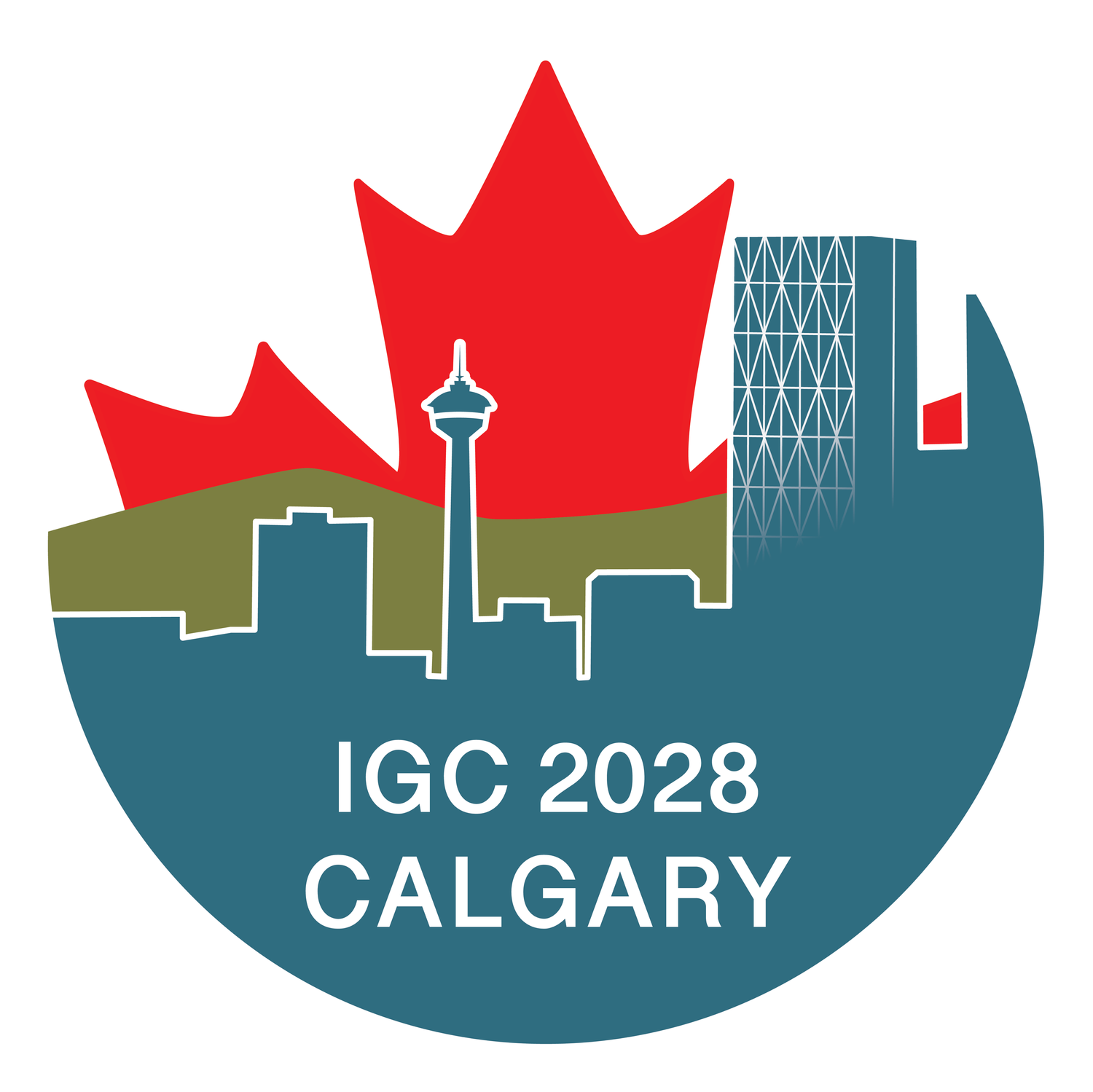
Why Canada?
Canada is a smart, culturally diverse, welcoming and a uniquely beautiful country. And we’re easy to get to from anywhere. Everyone is welcome in Canada too! Canada is home to more than 450 unique cultures and 25 per cent of Canadians have a mother tongue other than English or French. Diverse opinions are valued, respected and encouraged in Canada, which is why so much ground-breaking work happens here. See more here including the resources that make hosting an event in Canada easy: https://businessevents.destinationcanada.com/en-ca/plan/planning-tools.
Canadian geoscientists have a long history of association with the Congress. Canada was one of five countries at the founding of the International Geological Congress on 25th August 1876. Canada hosted the 12th IGC in Toronto in 1913 and the 24th IGC in Montreal in 1972. The 38th Congress in Canada would mark 56 years since the last IGC in Canada, and nearly 40 years since the last IGC in North America (1989 in Washington, DC).
With 22 UNESCO World Heritage Sites, 6 Geoheritage Sites, and 5 UNESCO Global Geoparks, the history of the Earth is fully captured across Canada – documenting episodes from the planet’s infancy to modern times. For example, visitors can witness one of the highest tidal ranges on our planet around the Bay of Fundy, while exploring the formation and breakup of the Pangea supercontinent between the Cliffs of Fundy and Stonehammer geoparks and Joggins Fossil Cliffs. Historic Quebec City straddles the Logan Line, the boundary between the Appalachian Mountains and the Grenville Province of the Canadian Shield.
This figure shows that Canada hasn’t hosted the IGC since 1972. There has never been an IGC hosted in Western North America. In the last 50 years, only 1 IGC has been hosted in North America in 1989 (in Washington DC, USA), whereas 2 have been hosted in Australia and 3 have been hosted in the European region.
Few countries can compete with the depth, diversity and grandeur of Canada’s geologic heritage:
Mt Logan (Yukon), Canada’s highest mountain, is named after Sir William Logan, the first director of the Geological Survey of Canada (GSC).
The GSC, 25 years older than Canada’s inception as an independent country, is Canada’s oldest scientific institute.
The Yukon Territory owes its origins to the Klondike gold rush, which brought over 100,000 prospectors to the region from 1896 to 1899.
Canada encompasses 25% of the world's wetlands and 20% of the world’s fresh water.
Canadian soils have been estimated to contain between 12 and 25% of global carbon stocks.
Against this backdrop, we will explore our human environment, climate drivers, essential resources, sustainability, and Indigenous partnerships. Geosciences for Humanity will be the central theme for the Congress. The scientific program for the 38th IGC will cover the full breadth of geosciences and feature Daily Keynote Themes that include:
Sustainability, Climate Change and Natural Hazards;
Shaping Geosciences for the Future;
Space and Planetary Geosciences; and
Critical Minerals and Sustainable Energy Transition.



